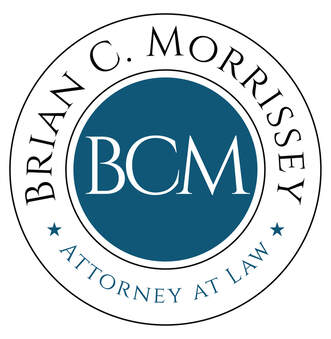Criminal Defense Strategies at Trial
When facing criminal charges, it is essential to understand the various defense strategies that can be employed to protect your rights and achieve the best possible outcome. There is no one-size-fits-all solution because every case is different. But there are a variety of defenses that can be employed if a case proceeds to trial. While there are no guarantees at trial, knowing what the defense strategy is before the trial is always important to have any chance at a not guilty verdict.
Innocence Defense
If you end up choosing to go to trial, your defense strategy may focus on presenting evidence and arguments that challenge the prosecution's case. This can involve questioning the credibility of witnesses, presenting an alibi, providing surveillance footage or other evidence that contradicts the prosecution's narrative, or highlighting flaws in the investigation or forensic analysis. There is no requirement that a defendant put on evidence or prove innocence, but if the evidence is available at trial then a defendant has a right to put on evidence of their own.
Lack of Evidence
Sometimes the evidence is not there. If the prosecution's case is weak or lacks sufficient evidence or corroboration, a defense strategy may involve highlighting the lack of proof beyond a reasonable doubt. This is the burden that the government has to bear, and if they cannot then the verdict must be not guilty. This can involve challenging the reliability or credibility of the evidence presented, pointing out inconsistencies in witness testimony, or highlighting gaps in the prosecution's case. The government is required to prove a case beyond a reasonable doubt at trial. If they cannot meet this burden, then this may be the best strategy for the case.
Self-Defense or Justification
If you believe your actions were justified or taken in self-defense, your defense strategy may involve presenting evidence that supports your claim. This can include witness testimonies, expert analysis, or demonstrating a reasonable belief that a person was in imminent danger of harm and that actions were necessary to protect the accused or others around them. In the state of Ohio, a defendant bears the initial burden of showing some evidence that tends to support the theory of self-defense. If that burden is met, the government then bears the burden of proving that the incident was not self-defense. This is a difficult burden for the government in many cases. If the evidence of self-defense is presented, it can be very difficult for the government to prove that an incident is not self-defense.
Insanity Defense
In cases where mental health is a factor, a successful defense strategy may involve asserting an insanity defense. This requires demonstrating that, at the time of the offense, a person was suffering from a mental illness or defect that impaired their ability to understand the nature or consequences of their actions. This defense is rarely used, but can be important in cases where mental health or severe mental health episodes are present. It usually involves examination from a medical professional to make that determination.
Mistaken Identity or Alibi
If there is a possibility of mistaken identity, a good defense strategy may involve presenting evidence that another person committed the crime or that there was a misidentification. This can include alibi evidence, witness testimonies, or surveillance footage. If a person has witnesses or evidence to prove that they were not in the area when the incident occurred, then an alibi defense may be in order. In today's day and age there are numerous ways to prove where a person was. Dash camera, surveillance footage, GPS coordinates, fitness watches and so many other types of electronic evidence can be used to prove an alibi.
Pretrial Motions and Procedural Defenses
A defense attorney may also employ various pretrial motions and procedural defenses to challenge the admissibility of evidence, suppress statements made to law enforcement, or request the dismissal of charges based on violations of your constitutional rights or other legal grounds. These are usually issues that are settled before trial, but some evidence may be let in at the trial if new facts come to light or a witness talks about a subject that allows further questioning. It is important to understand the limits on evidence that can be presented and what evidence is not allowed if the judge has already made a decision.
Remember, choosing the appropriate defense strategy depends on the specific circumstances of your case. It is crucial to work closely with a skilled criminal defense attorney who can assess the facts, develop a tailored defense strategy, and advocate for your rights throughout the legal process.
Every case is different. If you are looking for an experienced criminal defense attorney, call Brian C. Morrissey, for a free initial consultation at 419-830-7441 to discuss the specifics of your case.
When facing criminal charges, it is essential to understand the various defense strategies that can be employed to protect your rights and achieve the best possible outcome. There is no one-size-fits-all solution because every case is different. But there are a variety of defenses that can be employed if a case proceeds to trial. While there are no guarantees at trial, knowing what the defense strategy is before the trial is always important to have any chance at a not guilty verdict.
Innocence Defense
If you end up choosing to go to trial, your defense strategy may focus on presenting evidence and arguments that challenge the prosecution's case. This can involve questioning the credibility of witnesses, presenting an alibi, providing surveillance footage or other evidence that contradicts the prosecution's narrative, or highlighting flaws in the investigation or forensic analysis. There is no requirement that a defendant put on evidence or prove innocence, but if the evidence is available at trial then a defendant has a right to put on evidence of their own.
Lack of Evidence
Sometimes the evidence is not there. If the prosecution's case is weak or lacks sufficient evidence or corroboration, a defense strategy may involve highlighting the lack of proof beyond a reasonable doubt. This is the burden that the government has to bear, and if they cannot then the verdict must be not guilty. This can involve challenging the reliability or credibility of the evidence presented, pointing out inconsistencies in witness testimony, or highlighting gaps in the prosecution's case. The government is required to prove a case beyond a reasonable doubt at trial. If they cannot meet this burden, then this may be the best strategy for the case.
Self-Defense or Justification
If you believe your actions were justified or taken in self-defense, your defense strategy may involve presenting evidence that supports your claim. This can include witness testimonies, expert analysis, or demonstrating a reasonable belief that a person was in imminent danger of harm and that actions were necessary to protect the accused or others around them. In the state of Ohio, a defendant bears the initial burden of showing some evidence that tends to support the theory of self-defense. If that burden is met, the government then bears the burden of proving that the incident was not self-defense. This is a difficult burden for the government in many cases. If the evidence of self-defense is presented, it can be very difficult for the government to prove that an incident is not self-defense.
Insanity Defense
In cases where mental health is a factor, a successful defense strategy may involve asserting an insanity defense. This requires demonstrating that, at the time of the offense, a person was suffering from a mental illness or defect that impaired their ability to understand the nature or consequences of their actions. This defense is rarely used, but can be important in cases where mental health or severe mental health episodes are present. It usually involves examination from a medical professional to make that determination.
Mistaken Identity or Alibi
If there is a possibility of mistaken identity, a good defense strategy may involve presenting evidence that another person committed the crime or that there was a misidentification. This can include alibi evidence, witness testimonies, or surveillance footage. If a person has witnesses or evidence to prove that they were not in the area when the incident occurred, then an alibi defense may be in order. In today's day and age there are numerous ways to prove where a person was. Dash camera, surveillance footage, GPS coordinates, fitness watches and so many other types of electronic evidence can be used to prove an alibi.
Pretrial Motions and Procedural Defenses
A defense attorney may also employ various pretrial motions and procedural defenses to challenge the admissibility of evidence, suppress statements made to law enforcement, or request the dismissal of charges based on violations of your constitutional rights or other legal grounds. These are usually issues that are settled before trial, but some evidence may be let in at the trial if new facts come to light or a witness talks about a subject that allows further questioning. It is important to understand the limits on evidence that can be presented and what evidence is not allowed if the judge has already made a decision.
Remember, choosing the appropriate defense strategy depends on the specific circumstances of your case. It is crucial to work closely with a skilled criminal defense attorney who can assess the facts, develop a tailored defense strategy, and advocate for your rights throughout the legal process.
Every case is different. If you are looking for an experienced criminal defense attorney, call Brian C. Morrissey, for a free initial consultation at 419-830-7441 to discuss the specifics of your case.


